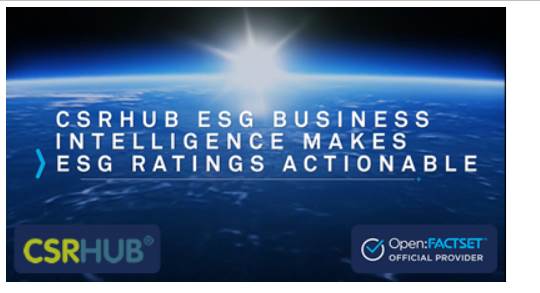By Carol Pierson Holding
Two somewhat encouraging facts landed on my desk this week. The first was a study from The  Brookings Institute reporting that 65% of Americans believe that “there is solid evidence that the average temperature on earth has been getting warmer.” While the absolute number may be lower than we’d like, it is moving in the right direction, up from 52% in the Spring of 2010 and much closer to 2008’s 72%. The research shows that more Americans believe in global warming because they experienced it first-hand this year in the much milder winters.
Brookings Institute reporting that 65% of Americans believe that “there is solid evidence that the average temperature on earth has been getting warmer.” While the absolute number may be lower than we’d like, it is moving in the right direction, up from 52% in the Spring of 2010 and much closer to 2008’s 72%. The research shows that more Americans believe in global warming because they experienced it first-hand this year in the much milder winters.
When results were parsed by political party, the study counted 42% Republicans among the “believers” in rising temperatures. Of course, that still leaves the majority of Republicans either don’t believe or are still unsure.
The second fact I learned during NBC’s broadcast of the US Open Golf Championship. During an interview with Dr. Kimberly Erusha, Managing Director of the USGA's Green Section, this senior official in a sport widely perceived to cater to Republicans (private clubs and so on) was an informed and proactive environmentalist, using phrases like “environmental impact,” “protecting our natural resources,” “water issues” and “pesticide reduction.”
Dr. Erusha’s interview made me remember how many US Corporations pay homage to environmentalism in the media. Their products are green. Many run promotions geared toward helping consumers get greener. In fact, Dr. Erusha’s 2011 interview for the Golf Channel’s Green Week, which was focused in part on how golfers could help maintain the courses by respecting environmentally sensitive areas, was sponsored by Chevron’s “Human Energy” campaign.
As of 2011, 83.5% of Fortune 500 companies had written environmental policy statements. Many connect their environmental performance to executive pay. CSRHub, the largest aggregator of sustainability data and sponsor of this blog, has done analysis showing that environmental ratings are improving across Fortune 1,000 companies.
So if corporate executives are at least talking the talk, who are these people who don’t believe in rising temperatures?
It’s pretty interesting.
Naturally, there are still people who haven’t witnessed a milder winter or hotter summer. And this group is still a big chunk of climate skeptical respondents (20%). But it’s only half what it was in 2008. And there’s the consistent 20% of people who believe warming is a “natural pattern.” But the biggest increases are from opinions that can be toughest to change: “Politically Driven” went from 2% to 9% and “Religious Factors” from under 1% to 10%. As one participant described their rationale, “God controls the weather.”
So while the overall news is good – more Americans believe climate change is real – the underlying factors for those that do not are really scary. If there is one argument we just can’t win, it’s an argument based on ideology.
Or can we?
It turns out that political and religious objections to global warming are only partly based on ideology. According to a story this week in US News (and according to my sources, later parodied on the Colbert Report), the real problem may be language. After the North Carolina state senate passed a bill requiring science on rising sea levels to be ignored, Virginia lawmakers worried about how they would get the votes for a scientific study to address the encroaching sea water that is flooding their coastal homes. Turns out all it took to get support from Republicans was to remove any reference to the “left wing terms” “sea level rise” or “climate change.” The bill did pass but only after its drafters substituted the less incendiary phrases "recurrent flooding," "coastal resiliency," and "increased flooding risk."
Environmentalists changed “global warming” to “climate change” without a blip. Maybe if scientists and politicians can keep up with the conservative language, we’ll get more believers — and more realistic policies.
Photo courtesy of go_greener_oz
Carol Pierson Holding writes on environmental issues and social responsibility for policy and news publications, including the Carnegie Council's Policy Innovations, Harvard Business Review, San Francisco Chronicle, India Time, The Huffington Post and many other web sites. Her articles on corporate social responsibility can be found on CSRHub.com, a website that provides sustainability ratings data on 5,000 companies worldwide. Carol holds degrees from Smith College and Harvard University.


